We’ve long been a fan of the work of soil scientist Dr. Christine Jones. She’s a globally recognised expert on soil health, and well-known in regenerative farming circles around the world.
Related Articles
Learn to love your weeds
Weeds provide many uses and benefits, both to you as a gardener and to the many creatures who live in your soil.
Can you use biochar with fruit trees?
Biochar is a wonderful thing to add to your soil to improve fertility and help your soil hold much more water.
Can fruit trees reduce your stress level?
In a tense, pandemic-ridden world, fruit trees, gardens, and nature provide the perfect (and proven) way to reduce stress levels.
We offer regular masterclasses with guest experts as part of our Grow Great Fruit program. Finding the right presenters can be a challenge because they need to be both experts in their field and also great communicators.
Having heard Christine speak on a number of occasions we knew she’d be fantastic. However, she’s usually in high demand on the international speaking circuit, so we didn’t have high expectations.
The pandemic changed that. Travel was impossible for a while, so we were delighted when she agreed to run not one, but two online masterclasses for us!
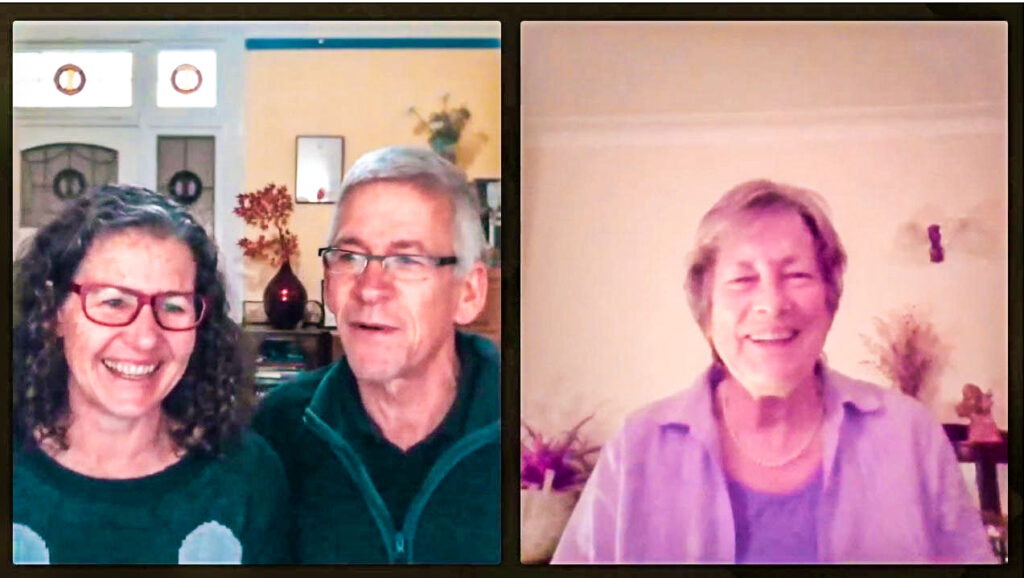
A deep dive into soil health
We were already familiar with and strongly influenced by, her work. But both masterclasses were still chock full of fabulous new information about soil, and honestly quite mind-blowing!
But not many non-farmers have heard of her.
So it’s always a treat to introduce new people to her rich ideas, particularly if they’re just starting to learn about healthy soil.
Despite being a world expert and academic, Dr. Jones makes soil fascinating even for complete beginners. We’ve seen it happen for the lovely gardeners in our Grow Great Fruit family, as well as volunteers at the farm.
When Alistair met Christine Jones – in his own words
Alistair Tuffnell was one such volunteer, who was moved to write a guest blog about his experience which you can read below.
As you can probably tell he was intrigued, excited, and a little overwhelmed by the experience. Dr. Jones has that effect on people!
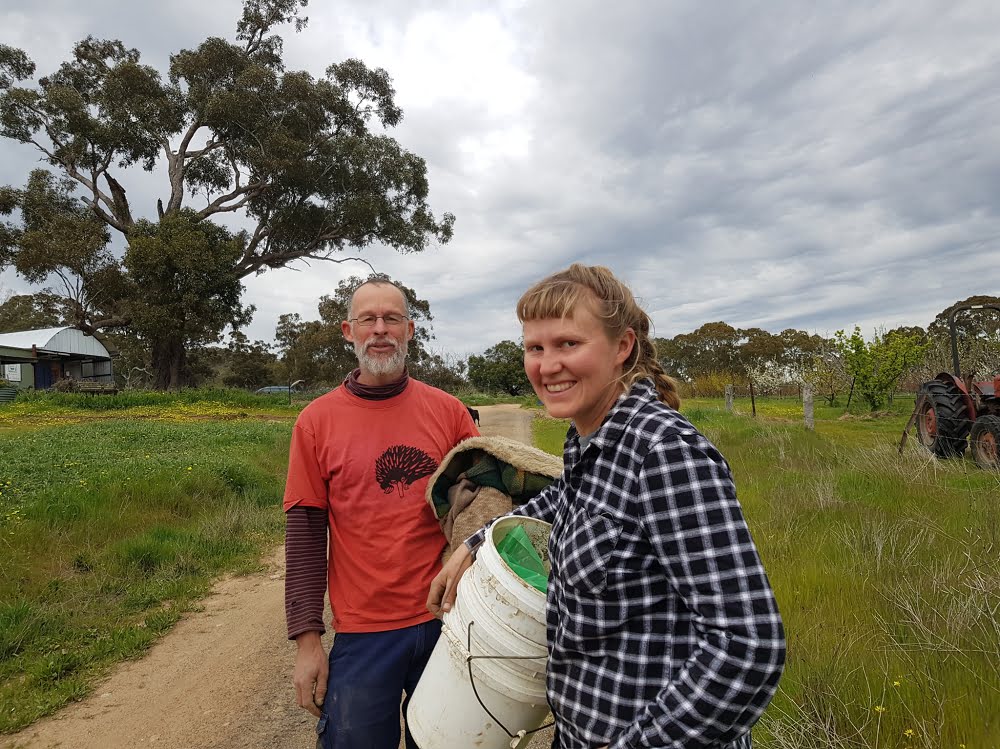
Hi, I am Alistair Tuffnell and I’ve come up to Harcourt Organic Farming Co-op for a few weeks to get some experience with Tess and Ollie on their dairy farm.
While I was there I went with Tessa, Ant, Katie, and Hugh to the Dr. Christine Jones workshop.
Straight away I was surprised and captivated by the stats and facts that Dr. Christine Jones was stating.
Dr. Jones’ evidence for the link between soil and human health
A significant percent of USA males are infertile due to (my understanding of what Christine said) their gut microbiome being deficient because of a really poor diet and a lack of diversity of plant species.
Autoimmune disorders such as autism are rising exponentially today. This is highly related to and (my understanding is it is) even caused by a lack of plant species in our diet.
We humans need to get at least 20 plant species in our diet weekly. A person who eats industrialised meat will have the same gut biome as a person who is on antibiotics.
And so on…
The power of microbes
This led to Christine making the point that we live in a microbial world. “Microbes can control the world. Microbes are smarter than biogenetic scientists.“
We need to coordinate them more in our soils. Agriculture is about food – ultimately grown in and from the soil – and at this point in time, our food has never been less nutritious.
Since colonisation in Australia there has been a staggering mineral depletion in our soils. But according to Christine ‘our soils are not mineral deficient but are deficient in microbes’.
Christine defined soil as ‘weathering rock materials (sand, silt, clay) that are in contact with plants’. So bare ground must not be soil!
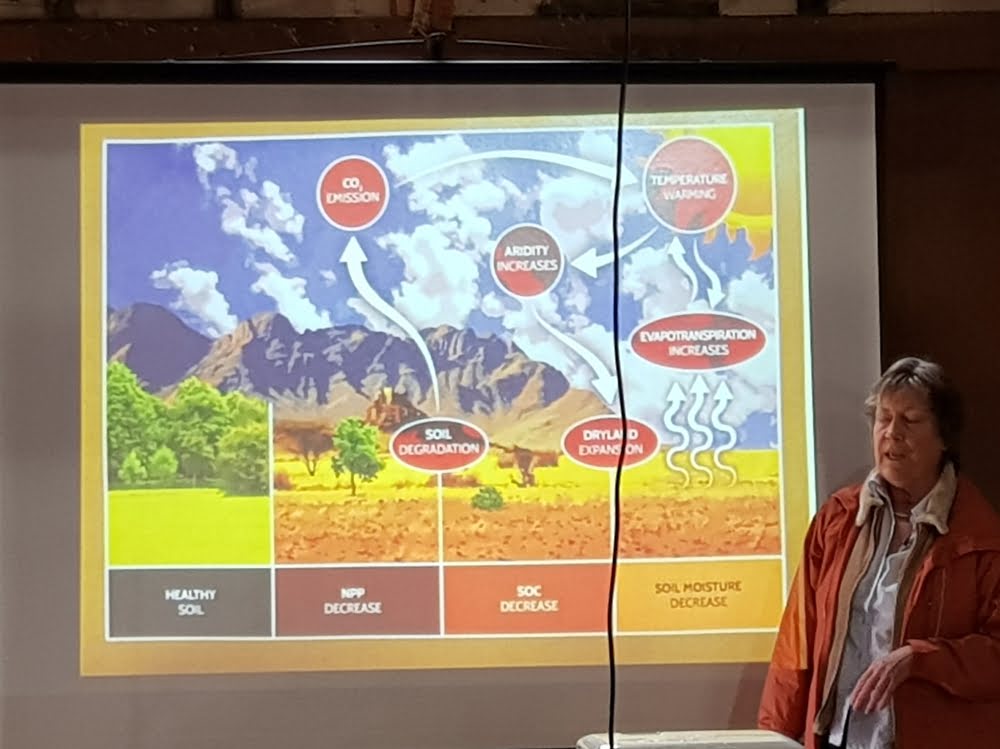
Making sense of new information
There was so much information presented.
I am sure I missed much of it with my novice soil and tiny farming experience. But some of the things Christine talked about stayed with me.
Such as, the presence of green plants is the most important factor in soil health. That water vapour from bare ground (we can’t see it) is the main driver of climate change. That plant root inputs build soil 30-50 times faster than compost does. It is the chemical signals of the microbial process that make plants so intelligent.
I walked away from the workshop thinking diversity, diversity, diversity – in what to eat and in what to grow as cover crops.
To improve our soils I understood Christine recommended growing about 20 different cover crops. She referred to the Intermediate Disturbance Hypothesis, which I don’t understand but want to.
I’ll definitely be heading to her website amazingcarbon.com to learn more.
Related Articles
Learn to love your weeds
Weeds provide many uses and benefits, both to you as a gardener and to the many creatures who live in your soil.
Can you use biochar with fruit trees?
Biochar is a wonderful thing to add to your soil to improve fertility and help your soil hold much more water.
Can fruit trees reduce your stress level?
In a tense, pandemic-ridden world, fruit trees, gardens, and nature provide the perfect (and proven) way to reduce stress levels.
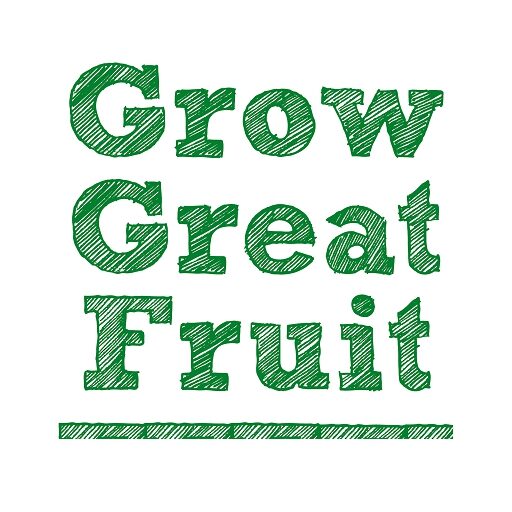
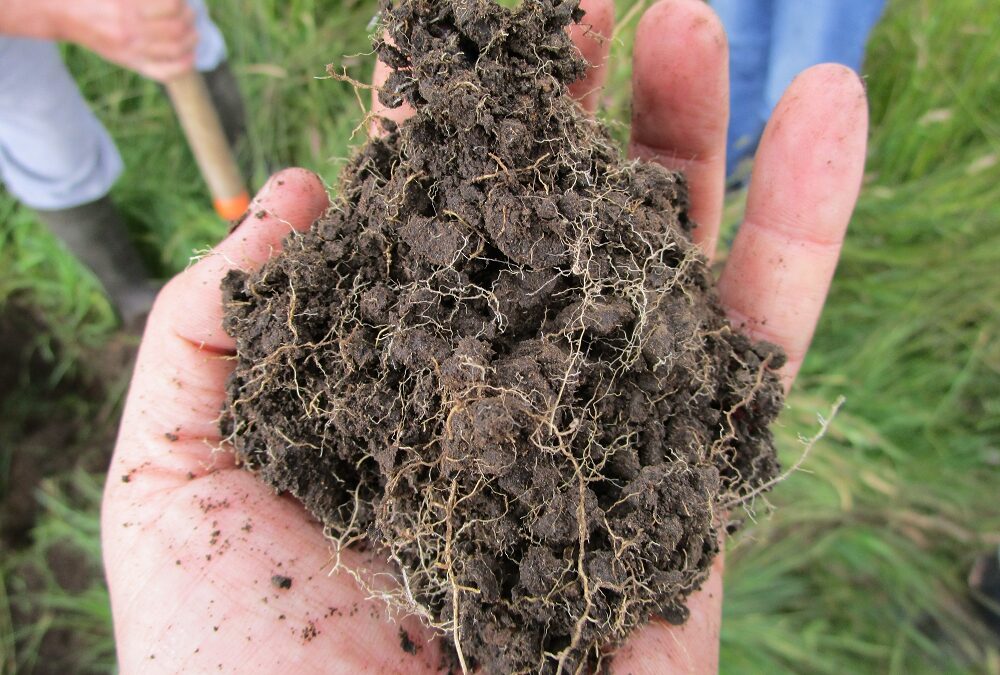

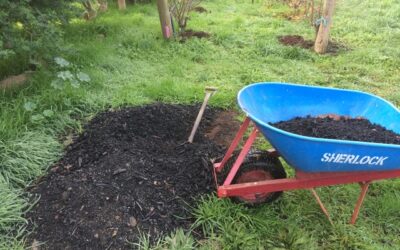
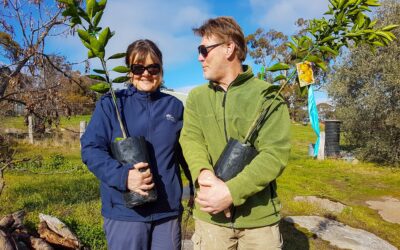
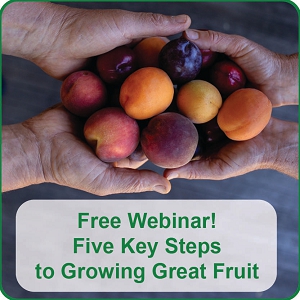
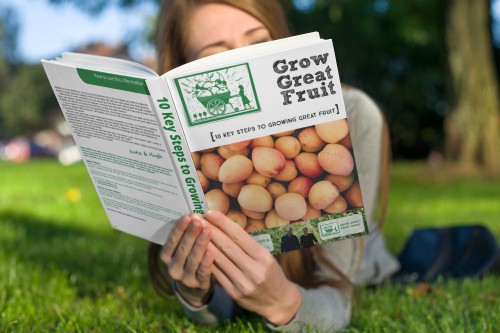
Wow, this would have been awfully interesting. Thank you for sharing your experience with us Alistair.
I’ll be checking Dr Christine Jones’s website very soon.
Hugh and Katie, this might be food for thought for a Dr C Jones podcast for us to listen too, if that’s at all possible?
Great idea Robyn, we’d love to share her material with everyone – we’ll have a look at how to make that possible.